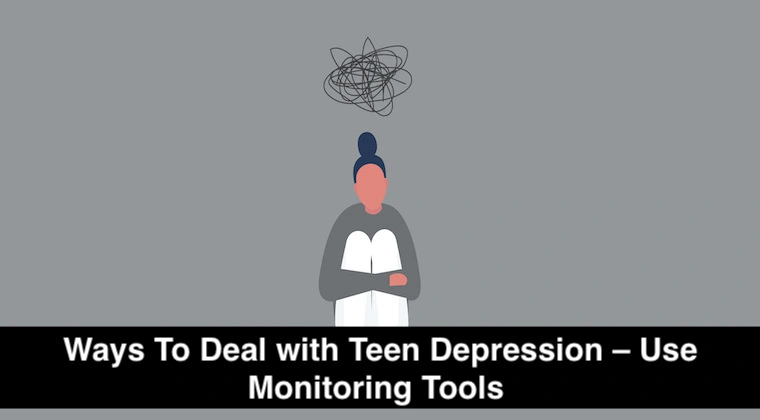+1 845 259 2974 (11 a.m to 7 p.m CST)
Teens and Depression: How to Make the Dark Clouds Go Away

Teen depression is more than just feeling sad or moody for a few days; it's a serious condition that affects how a teenager thinks, feels, and handles daily activities. Recognizing the signs of depression in teens is crucial because it often looks different from adult depression. It can include changes in behavior, academic struggles, and withdrawing from friends and activities they once enjoyed.
Addressing teen mental health is vital. It's not just about helping them through tough times; it's about giving them tools to manage their emotions and challenges effectively. Early intervention can prevent the condition from worsening and help teens lead happier, more fulfilling lives. This makes understanding and tackling teen depression not just a personal issue but a community priority. By focusing on mental health, we can empower teens to navigate the complexities of adolescence with confidence and support.
Identifying Signs of Depression in Teens
Depression is a serious mental health issue, and parents must give attention to their kids when they are showing signs. Here are some of the things that you can notice in your kids. These signs indicate that they are going through a mental health issue, possibly depression.
Changes in Behavior and Mood
When teens start showing sudden shifts in their behavior and mood, it's important to take notice. These changes can include becoming easily irritable, displaying anger unexpectedly, or undergoing frequent mood swings. A once cheerful teen might suddenly seem perpetually sad, withdrawn, or indifferent to things they used to enjoy. This stark shift is a key sign that they might be struggling with depression.
Academic Performance
Depression can also hit hard on a teen's academic life. You might notice a decline in their grades, or they may seem unable to concentrate on their studies. Unlike simple academic disinterest, depression makes it hard for them to focus, process information, or find motivation to keep up with schoolwork. This can add to their stress, creating a cycle that's hard to break without help.
Social Withdrawal
Another significant red flag is if a teen begins to pull away from friends and family. If they're spending more time alone, avoiding social gatherings, or showing little interest in activities they once loved, it could be a sign of depression. This isolation often stems from feeling misunderstood, overwhelmed, or unworthy of companionship, further deepening the grip of depression.
Role of Monitoring Tools
Monitoring tools play a strong role in making sure you know what your kids are going through. Though it seems like depression has nothing to do with the kids’ digital gadgets, what they do on the internet and their phones tells a lot about what they are going through. Kids share a lot through these platforms.
Types of Monitoring Tools Available
There are various monitoring tools designed to help manage teen depression. These include apps that track mood changes, offer meditation and mindfulness exercises, and even platforms that monitor social media to detect signs of distress. Wearables can also track sleep patterns and physical activity, offering insights into overall well-being.
How Monitoring Tools Can Help Parents and Teens
Monitoring tools can be a bridge between teens and their parents, facilitating open discussions about mental health. They provide objective data that can help identify patterns or triggers of depressive episodes, making it easier to understand and address the teen's needs. For teens, these tools can offer a sense of control over their mental health journey, empowering them to recognize and communicate their feelings more effectively. Ultimately, these tools can support a proactive approach to managing depression, fostering a supportive environment for recovery and growth.
Practical Steps to Use Monitoring Tools Effectively
Now, if you have decided to use monitoring tools and you know nothing about it, here are some tips:
Choosing the Right Tools
Selecting the right monitoring tools is crucial. Look for apps and devices that are user-friendly and match the specific needs of your teen. Consider tools that track mood, offer therapeutic exercises, or monitor sleep and activity levels. It's essential to involve your teen in this process, ensuring the tool feels helpful rather than invasive.
Guidelines for Respectful Monitoring
Respectful monitoring is key. Establish clear guidelines with your teen about how these tools will be used. It's important to emphasize that the goal is to support their well-being, not to invade their privacy. Agree on regular check-ins to discuss the data and feelings in a non-judgmental space. Ensure your teen understands they have control over their information and can share as much or as little as they're comfortable with. This approach fosters trust and encourages open communication between parents and teens.
Other Ways to Support Teens Dealing with Depression
If you are a parent, you can do a lot more along with using monitoring tools. Your kids need you and what is better than to connect with them. Here is how you can help them on your own:
Encouraging Open Communication
Creating a safe space for teens to express their feelings is crucial. Let them know it's okay to talk about their struggles without fear of judgment. Regular, casual check-ins can encourage them to open up over time.
Importance of Professional Help
Seeking professional help is often essential. A therapist can provide the coping strategies and support a teen needs to manage their depression. Encourage this step, showing that it's a sign of strength, not weakness.
Lifestyle Changes That Support Mental Health
Promoting healthy lifestyle choices can also make a big difference. Encourage regular exercise, a balanced diet, and sufficient sleep, as these can significantly impact mood and overall well-being. Also, consider limiting screen time and encouraging activities that foster a sense of achievement and connection. These positive steps can help build resilience and support recovery.
Managing teen depression is a multifaceted approach that extends beyond monitoring tools. It involves creating an environment of open communication, seeking professional help when necessary, and encouraging lifestyle changes that promote mental health. By paying attention to the signs of depression and actively supporting our teens through these strategies, we can empower them to navigate their challenges more effectively.
This journey requires patience, understanding, and a commitment to fostering a supportive and caring environment. As we empower teens to take control of their mental health, we pave the way for their recovery and growth into resilient, healthy adults. Remember, addressing teen depression is a collaborative effort that can lead to positive outcomes and a brighter future for our youth.





















